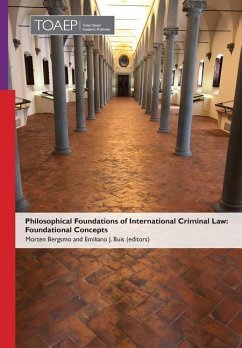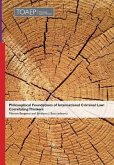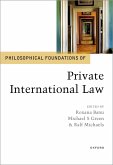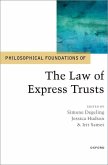This second volume in the series 'Philosophical Foundations of International Criminal Law' zooms in on some of the foundational concepts or principles of the discipline of international criminal law, with a view to exploring their Hinterland beyond the traditional doctrinal discourse. It contains eight chapters on concepts such as sovereignty, global criminal justice, international criminal responsibility for individuals, punishment, impunity and truth. Among the authors in this book are Christoph Burchard, Christopher B. Mahony, Milinda Banerjee, CHAO Yi, Javier Dondé-Matute, Barrie Sander, Max Pensky and Shannon E. Fyfe. The first volume in the series - Philosophical Foundations of International Criminal Law: Correlating Thinkers - correlates the writings of leading philosophers with international criminal law, including chapters on Plato, Cicero, Ulpian, Aquinas, Grotius, Hobbes, Locke, Vattel, Kant, Bentham, Hegel, Durkheim, Gandhi, Kelsen, Wittgenstein, Lemkin, Arendt and Foucault. A third volume - Philosophical Foundations of International Criminal Law: Legally Protected Interests - discusses the main values protected by the discipline and which should be added. These books do not develop or promote a particular philosophy or theory of international criminal law. Rather, they see philosophy of international criminal law as a discourse space, which includes a) correlational or historical, b) conceptual or analytical, and c) interest- or value-based approaches.
Hinweis: Dieser Artikel kann nur an eine deutsche Lieferadresse ausgeliefert werden.
Hinweis: Dieser Artikel kann nur an eine deutsche Lieferadresse ausgeliefert werden.








